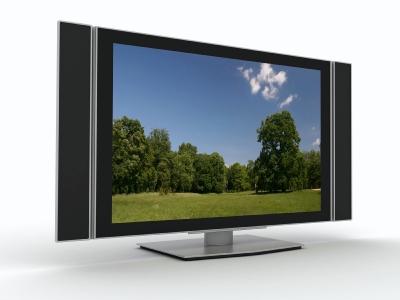
(Author's Note: This is the first in a series of articles that explain the differences among the many television technologies and help the consumer with a purchase decision. Follow the red links at the bottom of each article to continue with the next article in the series.)
Why is choosing a TV today so difficult?
Choosing a television today is much harder than it used to be. Up until the 1980s, there was really only one technology available for watching TV, the tube. At the time, there was little else involved in buying a TV other than picking out the size and whether you wanted a black & white or color TV. These differences however were plainly obvious on a sales floor.
In the 1980s, consumers faced even bigger decisions. Rear-projection TVs hit the scene, and huge screen sizes appeared. Though rear-projection TVs were based on the same technology as tubes, it was the first time that there were two completely different types of TVs to choose from. Though they had the same technology, it was a much different application. From that point on, the tube vs. big-screen war has continued, forcing people to decide which one is better than the other, with no chance of a clear winner ever emerging.
All the different choices
Today, not only are there several different types of televisions to choose from, but several different technologies as well. CRT rear-projection TVs are still based on tubes, but now there is DLP, LCD, LCoS, SXRD, and D-ILA in the projection category alone, not to mention LCD and Plasma in the flat-panel category, and they're all fighting for your hard earned dollar.
How can you compare TVs?
Shopping for TVs today can be incredibly overwhelming. All of the old methods for comparing TVs are virtually obsolete. How can you truly compare a plasma TV to a projection TV? Comparing image quality is one method, but each technology has advantages and disadvantages in picture. Another method of comparison is price, which is pretty much useless since today's TVs are so radically different in physical size and price. The fact is that the, "Which is better?" question doesn't apply anymore, at least not until you drill a little deeper into the buying process.
 Which is Better?
Which is Better?
Let's look at another common buying decision where, "Which is Better?" doesn't really work.
"Which is better...a Truck or a Ferrari?"
That's easy. A Ferrari is a fast, sporty car that can outrun every car on the road, while providing a high-tech and modern look. Simply put, a Ferrari is better than a truck.
Oh wait! You say a Ferrari would be terrible for hauling lumber or pulling an RV, plus it only holds 2 people, so your entire family can't fit. It's settled then...the truck is clearly better.
Okay, you get it. Neither car is "better", but one or the other is probably better for you. Some people want to haul lumber, others want speeding tickets, but most importantly, a variety of products exist to meet the needs of many individuals. So why do people still ask the questions like, "Which is better...Plasma or DLP?"
I'd say that advances in technology in the past, such as cassettes to CDs, or VHS to DVD have given everyone the idea that one technology is always superior over the other. Format changes aside, there is still debate that tube amplifiers give better sound, and that horn tweeters sound better than silk. You see, you can't pick a clear winner when opposing technologies essentially do the same thing, but merely in a different way. What makes it even worse is when opposing technologies each have their own advantages and disadvantages, making it virtually impossible to designate a clear winner.
 So, which one is better for me?
So, which one is better for me?
Make sense? Good. So now what? You want to know how to pick out a TV, and you've just learned that picking out a TV is impossible. Remember, designating which technology is "better" is impossible, but you can still easily determine which technology is better for you, given the right information. Read on to figure out which one is "better" for you.
Continue to "Factors to Consider when Choosing a TV"




